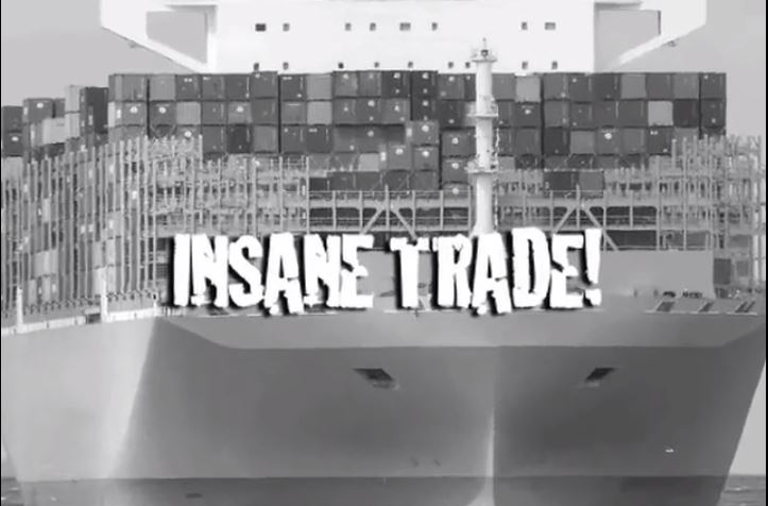The way trade works in the global economy can be insane – it wastes resources, worsens climate change, and undermines the livelihoods of millions of small-scale producers worldwide. Yet it is an almost unavoidable consequence of de-regulatory ‘free trade’ agreements and the billions of dollars in supports and subsidies – many of them hidden – that prop up the global economy.
To raise awareness about this issue, we’ve produced a short film and a fully-referenced factsheet that helps to explain how and why ‘insane trade’ happens:
Watch and Share our 3-Minute Film:
Some Jaw-Dropping Facts about Insane Trade
• More than half of the seafood caught in Alaska is processed in China; much of it is sent right back to American supermarkets – Alaska Journal of Commerce, 2018.
• Mexican calves fed American corn are exported to the United States, where they are butchered for meat, which is then sold in Mexico – The New York Times, 2017.
• African-grown coffee is often packed in India, Canadian prawns are processed in Iceland, and Bolivian nuts are packed in Italy – UK Times, 2007.

1) Say NO to Insane Trade
Eliminating unnecessary trade would immediately reduce pollution–including CO2 emissions – and slow resource depletion.
– Speak up – Share our Insane Trade factsheet and short film.
– Call for an end to corporate subsidies and tax breaks. For links to other organizations working on these issues, see the Resisting Corporate Power, Globalization, & ‘Free’ Trade category on our Links page. Read more about subsidies on our blog.
– Critically question “free trade” dogma. See our Independent Media Sources page for a list of sites that critically cover free trade. Head to our blog to read more about why so few people are informed about trade issues, and what can be done to stop free trade treaties.
– Support steps to internalize the costs of fossil fuels. For links to other organizations working on this issue, see the Environmental Justice, Climate, & Energy category on our Links page.
2) Say YES to Local Economies
– Localizing helps small farms and local businesses to thrive, strengthens community, and supports personal well-being.
– Buy local food and other local products.
– Help build local food systems and local business alliances. For links to other organizations working on these issues, see the Local Economies and Rethinking Economies and Food & Agriculture categories on our Links page.
– Grow the movement by organizing a workshop, study group, or film screening about economic localization.






